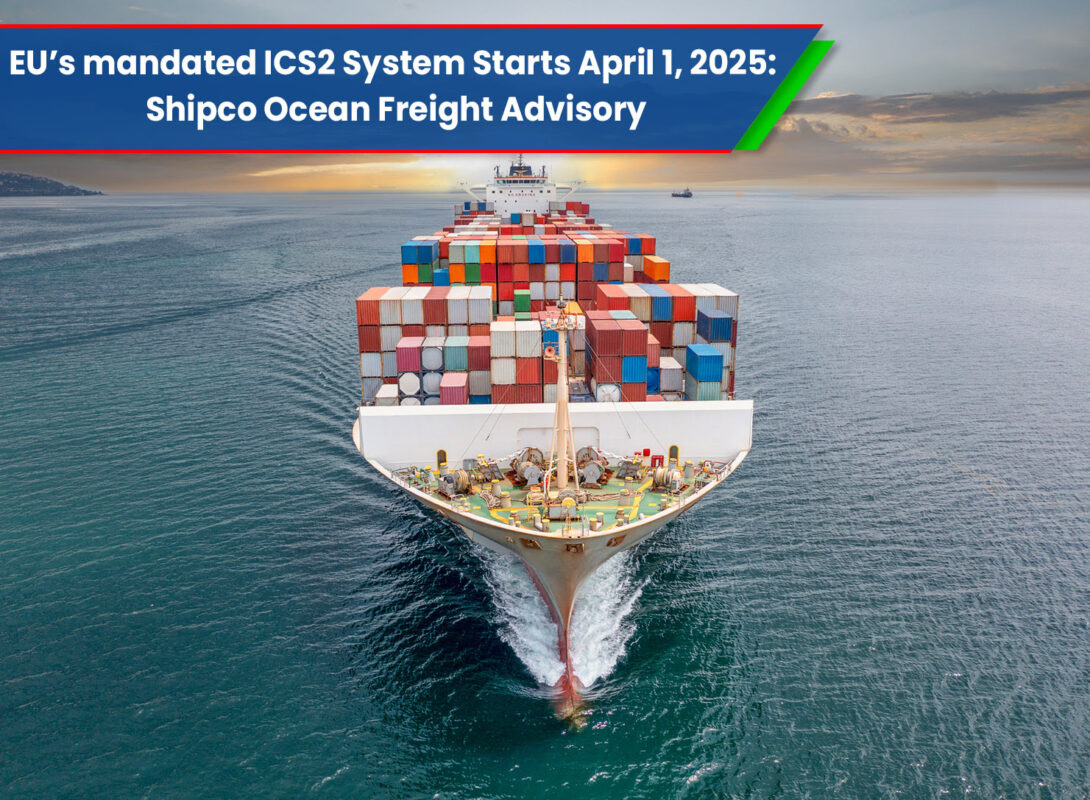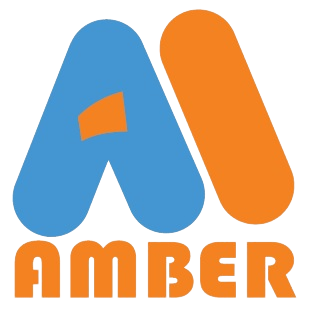
Effective April 1st, 2025, the procedure for cargoes entering into and via the European Union (EU) will change. Shipco would like to communicate the required mandatory information for all cargo discharging, transiting (FROB – Freight Remaining on Board), and transshipping via the European Union, Northern Ireland, Norway, and Switzerland.
All parties issuing a House Bill of Lading are required to file an Entry Summary Declaration (ENS) with EU Customs. To ensure compliance, Shipco requires the following details to be included in your Shipping Instructions (SLI) by the documentation cut-off time:
These changes will directly impact the ability to load freight and require strict adherence to new data requirements. Failure to comply will result in delays and potential cargo holds.
Key Changes and Requirements:
6-Digit Harmonized System (HS) Code for Each Commodity:
A precise 6-digit HS code is mandatory for every commodity listed on the shipping instructions.
Each commodity with a distinct HS code must be declared separately. Grouping commodities under a single, general description is strictly prohibited.
Example: Instead of “Auto Parts,” list “Brake Pads (HS code: 870830)” and “Headlights (HS code: 851220)” as separate line items.
Inner Piece Count:
The number of inner pieces within each package is now a required data element. This detail is crucial for accurate risk assessment.
CUS Code for hazardous & non-hazardous chemicals:
The CUS code is used within the European Union, within the ECICS (European Customs inventory of Chemical Substances)
These codes are used to identify chemical substances for customs purposes within the EU.
It is used to aid the communication between customs and the help identify chemical substances.
Economic Operators Registration and Identification (EORI) Numbers:
The EORI numbers of all parties involved in the shipment, including the consignor, consignee, and notify party, must be provided on the Shipping instructions.
Self-Filing and Entry Summary Declaration (ENS):
If you are a self-filer, timely submission of the ENS is important.
A valid Movement Reference Number (MRN) is required before cargo can be loaded.
Failure to receive a timely MRN will result in the cargo being held and not loaded.
Shipco Filing Option:
To ensure seamless compliance and avoid potential delays, Shipco offers to file the ENS on your behalf.
To utilize this service, all required documentation and information must be received by the established Documentation Cut-off Day.
Consequences of Non-Compliance:
Cargo delays and holds.
Potential fines and penalties.
Recommendations:
Review your internal processes and ensure they align with the new ICS2 requirements.
Communicate these changes to your clients and partners.
Verify the accuracy of all HS codes, EORI numbers, and inner piece counts provided on shipping documents.
If you are a self-filer, familiarize yourself with the ENS submission process and ensure timely filing.
Be extra diligent with your documentation and be sure to provide accurate and complete information.
To ensure timely loading of your freight, please be mindful of these critical requirements. If you should have comments or questions concerning this topic, please reach out to your local Shipco team.
Source: Shipco Transport
U.S. Tariffs on Imported Cars and Parts to
Increase from 2.5% to 25%
The U.S. government is imposing a 25% tariff on all foreign-built cars, light-duty trucks and certain auto parts. This is a significant increase from the current rate of 2.5%. The tariff will take effect starting April 3, 2025, for vehicles, while auto parts will be taxed by May 3. The new policy applies to finished vehicles and select auto parts, including those from American brands manufactured abroad. Officials say the goal is to strengthen domestic manufacturing. In 2024, the U.S. imported $219.49 billion in cars, a 4% year-over-year increase. Mexico was the largest supplier at $49.98 billion, followed by Japan at $40.76 billion, South Korea at $38 billion, Canada at $28.4 billion, and Germany at $25.59 billion.
Cox Automotive estimates vehicles from Mexico and Canada could cost $6,000 more, Reuters reports. Currently, 44% of new cars sold in the U.S. are imported. Some automakers could shift production to avoid the tariffs, but the long-term effects remain uncertain.
Source: American Shipper
Global Shipping Reliability Reaches 54.9% in February
In February 2025, global schedule reliability rose to 54.9%, up 3.6 percentage points month-over-month and 1.8 points year-over-year. Maersk led the top 13 carriers with a reliability rate of 60.2%, followed by MSC at 57.4%, and Hapag-Lloyd at 57.3%. Two new carrier alliances, Gemini Cooperation and Premier Alliance, were launched in February, while the 2M and THE Alliance are being phased out. The Ocean Alliance remains unchanged. Although MSC is not in an alliance, its extensive East-West network positions it as a significant player in the alliance context.
Initial data from February, based on origin port calls, indicates that Gemini Cooperation leads with a reliability rate of 94.0%, followed by MSC at 79.6%, and Premier Alliance at 60.4%. The Ocean Alliance recorded an on-time performance at 54.1%, while THE Alliance and 2M trailed at 45.3% and 44.2% respectively.
“It is important to stress that the new alliances are just in the beginning phase of their network roll-out, and they will only be fully rolled out in July 2025, and only then will it be possible to truly evaluate their performance. It is nevertheless an interesting data point, to see how they have performed on the initial origin arrivals,” commented Alan Murphy, CEO of Sea-Intelligence.
Source: Sea-Intelligence
ZEMBA Calls for Stronger Action on Clean Fuels from IMO
The Zero Emission Maritime Buyers Alliance (ZEMBA), representing 40 global freight buyers, is calling on the International Maritime Organization (IMO) to approve “a clear, comprehensive, globally consistent set of measures” at its upcoming meeting. These measures aim to accelerate the transition to clean energy in the shipping industry. The 83rd Marine Environment Protection Committee (MPEC) meeting, scheduled for April 7–11 in London, will focus on greenhouse gas (GHG) fuel intensity regulations and carbon emissions taxes. Ingrid Irigoyen, president and CEO of ZEMBA, emphasized the need for regulatory clarity and urged the IMO to align its measures with ZEMBA’s urgency, committing to long-term solutions.
ZEMBA’s first tender is expected to reduce at least 82,000 metric tons of carbon dioxide equivalent (CO2e) emissions in 2025 and 2026 by using waste-based biomethane. The second tender aims for 80 billion metric ton-nautical miles of ocean shipping powered by e-fuels.
The IMO’s 2023 roadmap targets net-zero GHG emissions by 2050, with significant reductions to be achieved by 2030 and 2040.
Source: Journal of Commerce
